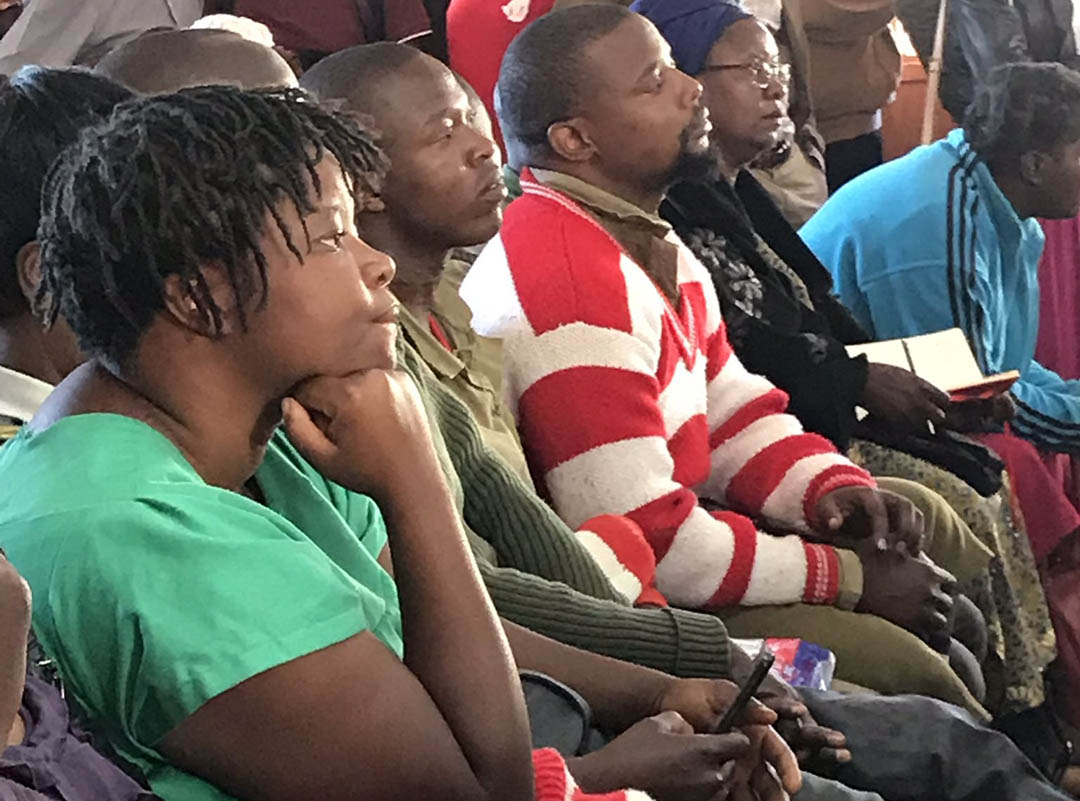HARARE – Five of the seven civil society activists detained on charges of plotting to overthrow the government of President Emmerson Mnangagwa were freed on bail on Friday, as a judge questioned the strength of the charges.
Justice Tawanda Chitapi of the Harare High Court released the five on $1,000 bail each, and imposed a requirement that they must report to the police daily as part of their release conditions. The activists can apply for a variation after 21 days.
George Makoni, 38, an advocacy officer for the Centre for Community Development Zimbabwe; Tatenda Mombeyarara, 37, the co-ordinator of lobby group Citizens Manifesto; Gamuchirai Mukura, 31, the executive director of Community Tolerance Reconciliation and Development (COTRAD); and Nyasha Mpahlo, 35, the governance officer at Transparency International Zimbabwe tasted freedom for the first time since their arrest on May 20 as they returned home from a trip to the Maldives.
They had attended a workshop organised by The Centre for Applied Non-Violent Action and Strategies (CANVAS) from 15-19 May. CANVAS has released a statement calling the charges “blatantly false”, adding that “participation in a workshop with a focus on peacebuilding and nonviolence should never be considered a crime, as the practice of nonviolence and peaceful assembly are fundamental human rights.”
Two others, Stabile Dewah, 35, and Rita Nyamupinga, 61, were arrested a few days later and also hit with similar charges. Their bail hearing on Friday was before a different judge, Justice Owen Tagu, who postponed ruling to Monday, June 10.
Justice Chitapi said it had become apparent while weighing the state evidence that they had a weak case.
The judge said police appeared to have “arrested to investigate”, which would make the arrest of the five unlawful.
“The applicants told this court that their arrest and detention was unlawful and was done in violation of their constitutional rights to. They said they were not informed of their charges upon arrest, this was not contested by the State. They said they were not granted access to their lawyers, this was also not disputed by the State. This court will take it as a fact that circumstances surrounding the arrest and detention were as detailed by the applicants,” Justice Chitapi said.
The judge said prosecutors had failed to put forward any evidence proving allegations of subversion.
He said in his ruling: “This court agrees that allegations should be viewed in serious light as submitted by the State, but it is for this court to balance the interests of the State and those of the applicants. The State failed to place anything before the court showing the workshop had anything to do with subversion.
“The programme of the workshop was produced by the applicants who wanted to prove the workshop had nothing to do with subversion but the State then pounced on the programme and tried to make it it’s own case.”
Chitapi said the fact that the applicants chose to come back home knowing that arrest was imminent showed that they were not a flight risk.
“This court will take judicial notice of issues of violence which has rocked the country recently but the State failed to link the applicants with the previous disturbances,” the judge went on.
“It is clear that the State arrested to investigate since prosecutor (Clemence) Chimbare submitted that the seized cellphones of the applicants and laptops were currently being checked for any subversive information at POTRAZ.”
He said the State contradicted itself since the prosecutor also told court that they seized the gadgets after establishing they contained such material.
“If the evidence of subversion is the gadgets used at the workshop, then the evidence is safe because the police seized all gadgets of the workshop participants,” the judge said.
He said the State also failed to show which witnesses will be interfered with.
“In the view of this court, there are no compelling reasons upon which the applicants can be denied bail. What is required is to balance interests of both sides to ensure that the administration of justice is not undermined,” he ruled.
“There is need to allay fears of the State by imposing stringent conditions,” said Chitapi before granting the five bail.
Rose Hanzi, one of the lawyers representing the five, said outside court: “The judge took notice of the fact that state authorities must respect the constitution, particularly Chapter 4 which contains the Bill of Rights provisions.
“It was very clear from the circumstances of the manner in which they were arrested, the manner in which they were detained, their rights as detainees particularly access to lawyers, access to food and access to relatives that the state officials who were involved were acting outside the ambit of the constitution. The judge castigated them strongly and urged them to respect the constitution which is the supreme law of the land.
“We are also excited that the issue of arresting to investigate that we have always spoken about was noted by the judge; that it’s a wrong practice and we hope that going forward police are going to institute sweeping reforms to ensure that police officers and any other state agents involved in the arrest of people follow the dictates of the constitution and they follow the procedures in the Criminal Procedures and Evidence Act of arresting people.”















